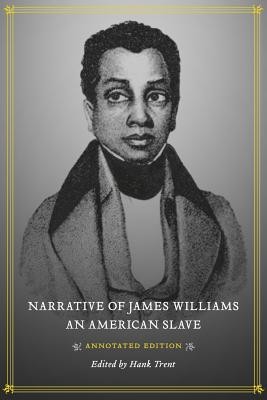
- We will send in 10–14 business days.
- Author: Hank Trent
- Publisher: LSU Press
- ISBN-10: 0807151025
- ISBN-13: 9780807151020
- Format: 16 x 22.9 x 2.5 cm, hardcover
- Language: English
- SAVE -10% with code: EXTRA
Reviews
Description
The American Anti-Slavery Society originally published Narrative of James Williams, an American Slave in 1838 to much fanfare, describing it as a rare slave autobiography. Soon thereafter, however, southerners challenged the authenticity of the work and the society retracted it. Abolitionists at the time were unable to defend the book; and, until now, historians could not verify Williams's identity or find the Alabama slave owners he named in the book. As a result, most scholars characterized the author as a fraud, perhaps never even a slave, or at least not under the circumstances described in the book.
In this annotated edition of Narrative of James Williams, an American Slave, Hank Trent provides newly discovered biographical information about the true author of the book -- an African American man enslaved in Alabama and Virginia. Trent identifies Williams's owners in those states as well as in Maryland and Louisiana. He explains how Williams escaped from slavery and then altered his life story to throw investigators off his track. Through meticulous and extensive research, Trent also reveals unknown details of James Williams's real life, drawing upon runaway ads, court cases, census records, and estate inventories never before linked to him or to the narrative. In the end, Trent proves that the author of the book was truly an enslaved man, albeit one who wrote a romanticized, fictionalized story based on his real life, which proved even more complex and remarkable than the story he told.
EXTRA 10 % discount with code: EXTRA
The promotion ends in 16d.22:19:25
The discount code is valid when purchasing from 10 €. Discounts do not stack.
- Author: Hank Trent
- Publisher: LSU Press
- ISBN-10: 0807151025
- ISBN-13: 9780807151020
- Format: 16 x 22.9 x 2.5 cm, hardcover
- Language: English English
The American Anti-Slavery Society originally published Narrative of James Williams, an American Slave in 1838 to much fanfare, describing it as a rare slave autobiography. Soon thereafter, however, southerners challenged the authenticity of the work and the society retracted it. Abolitionists at the time were unable to defend the book; and, until now, historians could not verify Williams's identity or find the Alabama slave owners he named in the book. As a result, most scholars characterized the author as a fraud, perhaps never even a slave, or at least not under the circumstances described in the book.
In this annotated edition of Narrative of James Williams, an American Slave, Hank Trent provides newly discovered biographical information about the true author of the book -- an African American man enslaved in Alabama and Virginia. Trent identifies Williams's owners in those states as well as in Maryland and Louisiana. He explains how Williams escaped from slavery and then altered his life story to throw investigators off his track. Through meticulous and extensive research, Trent also reveals unknown details of James Williams's real life, drawing upon runaway ads, court cases, census records, and estate inventories never before linked to him or to the narrative. In the end, Trent proves that the author of the book was truly an enslaved man, albeit one who wrote a romanticized, fictionalized story based on his real life, which proved even more complex and remarkable than the story he told.


Reviews